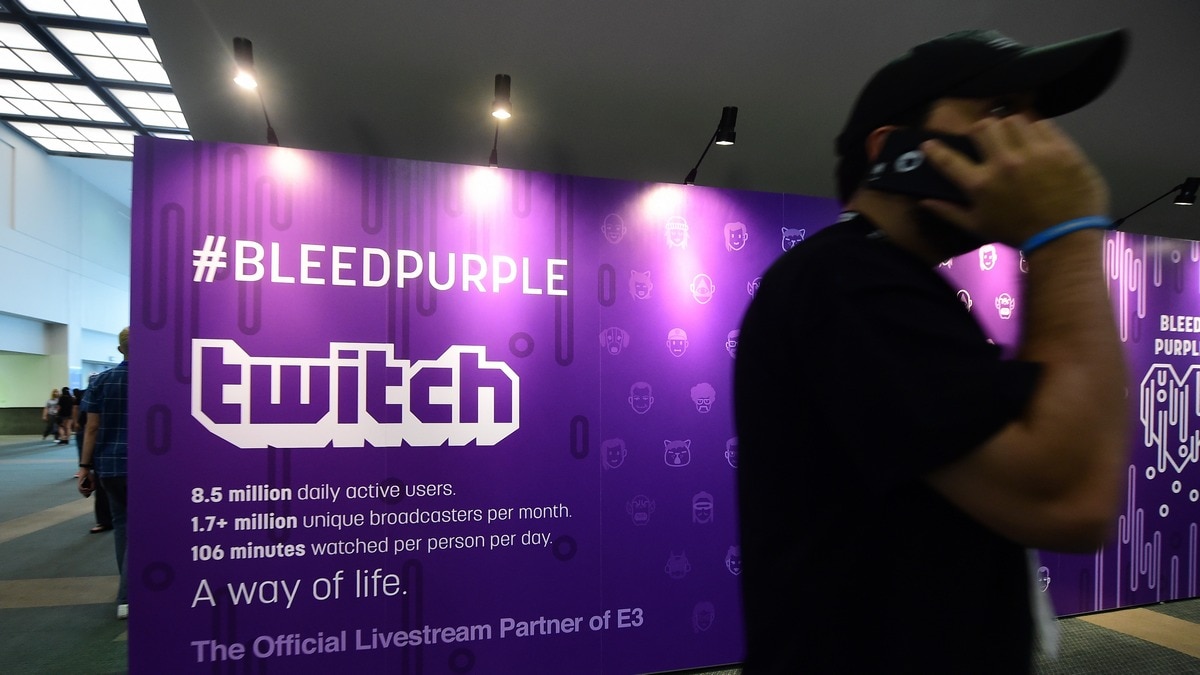- Home
- Internet
- Internet Features
- Germany Synagogue Shooting Streamed on Twitch: Explained
Germany Synagogue Shooting Streamed on Twitch: Explained
Twitch has faced other complaints in the past — largely from female gamers who say they have been harassed.

The attacker who killed two people in a shooting at a German synagogue livestreamed the assault on Twitch, a video service owned by Amazon. It was one of the first violent attacks streamed on the service, which is best known for letting people watch others play competitive video games.
Here's what you need to know about Twitch.
Watching people play
Twitch is a site where people can live-stream video games as they're playing, usually providing tips and commentary while others watch. The platform has boomed in popularity over the past few years. It played a key role in boosting the spread of "esports," or competitive video gaming.
Popular Twitch gamers can have millions of followers. The platform itself has more than 100 million monthly users.
Non-video game violence
Twitch said it found and took down the video with "urgency" and said it was "shocked and saddened by the tragedy." But the video is reportedly 36 minutes long.
Twitch said only about five people saw the live-stream, but 2,200 viewed the finished recording of the video for the next half-hour before Twitch took it down. The video has also spread to other corners of the internet.
Twitch has faced other complaints in the past — largely from female gamers who say they have been harassed, echoing an undercurrent of sexism that has long been an issue in gaming culture. Twitch has policies in place against hateful conduct and harassment and asks users and streamers to report inappropriate conduct.
The attack in Germany echoed a March assault in Christchurch, New Zealand. Then, the perpetrator live-streamed his attack on Facebook. The social network subsequently said it was working on restricting some users with previous rules violations from using Facebook Live. It also continues to work on artificial intelligence technology that can detect violent videos to prevent them from being re-shared.
It's hard to guess why Twitch was chosen this time, said Hannah Bloch-Wehba, a law professor at Drexel University. She said attempts by Twitter and Facebook to crack down on such material may have discouraged people from trying to stream violence there.
A rowing problem
Internet companies have pledged after each attack to work on preventing such livestreams from happening again, including by advancing artificial intelligence to catch such videos. Bloch-Wehba is sceptical that those efforts alone will entirely halt the problem.
There's an argument that the big companies should be doing a lot more, said Justin Brookman, the director of consumer privacy and technology policy for Consumer Reports.
"Companies definitely need better legal incentives to police their platforms from abuse," he said.
Twitch said it found evidence the video was shared in messaging services outside the platform. It shared a forensics fingerprint of the video, or hash, with other tech companies to help them identify copies spreading on their own services.
The Christchurch shooting earlier this year was live on Facebook for 17 minutes — and Facebook said none of the 200 so people who watched reported it to moderators. This raised questions about Facebook's reliance on user reporting rather than proactive detection of objectionable content.
Facebook has already been programming its artificial intelligence systems to detect things like nudity and known materials from extremist groups such as ISIS. It's been working to expand that to other types of images and videos. For instance, Facebook said last month that it will use first-person videos taken during police firearm training sessions to teach its AI to detect livestreams of real-world shootings.
The company has also been trying to rein white nationalist ideology on its sites. Since March, for instance, people who search for terms associated with white supremacy on Facebook are directed to the website for Life After Hate, a group created to help people leave the violent far-right.
How twitch grew
Seattle tech giant Amazon bought Twitch for $970 million in 2014. It had already attracted a critical mass of video-game streamers and remains the primary place to watch gamers play.
Competitors such as Microsoft-owned Mixer and Google-owned YouTube have been angling for a slice of that business. Mixer even poached one of Twitch's star gamers , a Fortnite player known as Ninja, in August.
Get your daily dose of tech news, reviews, and insights, in under 80 characters on Gadgets 360 Turbo. Connect with fellow tech lovers on our Forum. Follow us on X, Facebook, WhatsApp, Threads and Google News for instant updates. Catch all the action on our YouTube channel.
Related Stories
- Samsung Galaxy Unpacked 2026
- iPhone 17 Pro Max
- ChatGPT
- iOS 26
- Laptop Under 50000
- Smartwatch Under 10000
- Apple Vision Pro
- Oneplus 12
- OnePlus Nord CE 3 Lite 5G
- iPhone 13
- Xiaomi 14 Pro
- Oppo Find N3
- Tecno Spark Go (2023)
- Realme V30
- Best Phones Under 25000
- Samsung Galaxy S24 Series
- Cryptocurrency
- iQoo 12
- Samsung Galaxy S24 Ultra
- Giottus
- Samsung Galaxy Z Flip 5
- Apple 'Scary Fast'
- Housefull 5
- GoPro Hero 12 Black Review
- Invincible Season 2
- JioGlass
- HD Ready TV
- Latest Mobile Phones
- Compare Phones
- Realme P4 Lite
- Vivo V70
- Vivo V70 Elite
- Google Pixel 10a
- Tecno Camon 50
- Tecno Camon 50 Pro
- Lava Bold N2
- Vivo V60 Lite 4G
- Asus Vivobook 16 (M1605NAQ)
- Asus Vivobook 15 (2026)
- Infinix Xpad 30E
- Brave Ark 2-in-1
- Amazfit T-Rex Ultra 2
- boAt Chrome Iris
- Xiaomi QLED TV X Pro 75
- Haier H5E Series
- Asus ROG Ally
- Nintendo Switch Lite
- Haier 1.6 Ton 5 Star Inverter Split AC (HSU19G-MZAID5BN-INV)
- Haier 1.6 Ton 5 Star Inverter Split AC (HSU19G-MZAIM5BN-INV)







![[Partner Content] OPPO Reno15 Series: AI Portrait Camera, Popout and First Compact Reno](https://www.gadgets360.com/static/mobile/images/spacer.png)








